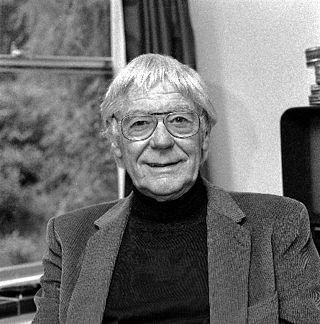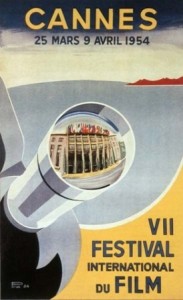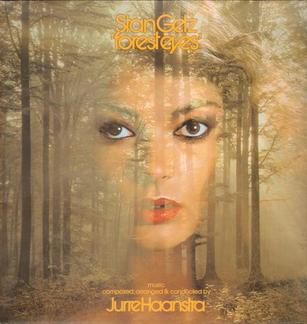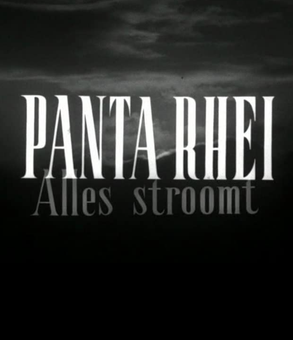Related Research Articles

Cinema of the Netherlands refers to the film industry based in the Netherlands. Because the Dutch film industry is relatively small, and there is little or no international market for Dutch films, almost all films rely on state funding. This funding can be achieved through several sources, for instance through the Netherlands Film Fund or the public broadcast networks. In recent years the Dutch Government has established several tax shelters for private investments in Dutch films.

The Netherlands Film Festival is an annual film festival, held in September and October of each year in the city of Utrecht.

Albert Haanstra was a Dutch director of films and documentaries. His documentary Glass (1958) won the Academy Award for Documentary Short Subject in 1959. His feature film Fanfare (1958) was the most visited Dutch film at the time, and has since only been surpassed by Turkish Delight (1973).

Glass is a 1958 Dutch short documentary film by director and producer Bert Haanstra. The film won the Oscar for Documentary Short Subject in 1959. The film is about the glass industry in the Netherlands. It contrasts the handmade crystal from the Royal Leerdam Glass Factory with automated bottle making machines. Short segments of artisans making various glass goods by hand are joined with those of mass production. It is often acclaimed to be the perfect short documentary.

The 4th Cannes Film Festival was held from 3 to 20 April 1951. The previous year, no festival had been held because of financial reasons. In 1951, the festival took place in April instead of September to avoid direct competition with the Venice Film Festival.

The 5th Cannes Film Festival was held from 23 April to 10 May 1952. As in the previous three festivals, the entire jury of this festival was made up of French persons, with Maurice Genevoix as the Jury President. The Grand Prix of the Festival went to the Two Cents Worth of Hope by Renato Castellani and Othello by Orson Welles. The festival opened with An American in Paris by Vincente Minnelli.

The 6th Cannes Film Festival was held from 15 to 29 April 1953. The Grand Prix of the Festival went to The Wages of Fear by Henri-Georges Clouzot.

The 7th Cannes Film Festival was held from 25 March to 9 April 1954. With Jean Cocteau as president of the jury, the Grand Prix went to the Gate of Hell by Teinosuke Kinugasa. The festival opened with Le Grand Jeu by Robert Siodmak. This was the last festival with a predominantly French jury.

The 9th Cannes Film Festival was held from 23 April to 10 May 1956. The Palme d'Or went to The Silent World by Jacques-Yves Cousteau and Louis Malle. The festival opened with Marie-Antoinette reine de France, directed by Jean Delannoy and closed with Il tetto by Vittorio De Sica.

The 10th Cannes Film Festival was held from 2 to 17 May 1957.

The 12th Cannes Film Festival was held from 30 April to 15 May 1959. The Palme d'Or went to the Orfeu Negro by Marcel Camus. The festival opened with Les Quatre Cents Coups, directed by François Truffaut and closed with The Diary of Anne Frank, directed by George Stevens.
Fanfare is a 1958 Dutch comedy film directed by Bert Haanstra. The film was entered into the 1959 Cannes Film Festival and the 1st Moscow International Film Festival. It was the most successful Dutch film at the time with over 2.6 million admissions until it was surpassed by the 1973 film Turkish Delight.
When the Poppies Bloom Again is a 1975 Dutch drama film directed by Bert Haanstra. It is based on the book The Nail Behind the Wallpaper by Anton Koolhaas.

The 8th annual Berlin International Film Festival was held from 27 June to 8 July 1958 with the Zoo Palast as the main venue. The festival was opened by then West Berlin's newly elected mayor Willy Brandt.

The 12th annual Berlin International Film Festival was held from 22 June to 3 July 1962.

The 14th annual Berlin International Film Festival was held from 26 June to 7 July 1964.
The Family of Chimps is a 1984 Dutch documentary film directed by Bert Haanstra. The film is a study of the behaviour of a family of chimpanzees in Burgers' Zoo in Arnhem in the Netherlands. The documentary was inspired by the 1982 book Chimpansee politiek by primatologist and ethologist Frans de Waal.

Forest Eyes is an album by saxophonist Stan Getz featuring compositions by Jurre Haanstra, several of which featured in Bert Haanstra's film "Een Pak Slaag", which was recorded in 1979 and originally released on the Dutch CBS label.

Panta Rhei is a Dutch short documentary film by Bert Haanstra, first shown in 1952. It portrays the motions of nature, edited rhythmically with alternating footage of water, clouds and vegetation, sometimes using time-lapse photography. It was Haanstra's fourth film as director and like many of his early films it does not feature any humans. The title is a Greek phrase associated with the philosopher Heraclitus and the concept that everything is in a constant state of becoming something else. The film competed at the 1952 Cannes Film Festival. Critics have highlighted its rhythmicality and vision of nature.
References
- ↑ "Bert Haanstra - English". www.berthaanstra.nl. Retrieved 3 May 2021.
- ↑ "Festival de Cannes: Mirror of Holland". festival-cannes.com. Retrieved 13 January 2009.